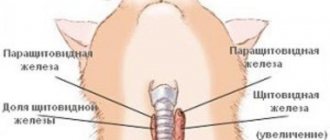Heated discussions regarding cat self-walking have divided cat owners into two camps. Some of them believe that a domestic cat should not leave the confines of an apartment or house, while others argue that forced confinement within four walls can hardly be considered caring for a pet. However, there are situations when the animal must be under the constant supervision of the owner (illness, injury, condition after surgery, estrus, etc.), and then it is necessary to re-educate the mustachioed-striped one, instilling in him an exclusively home regime.
“I, a cat, go wherever I please, and I walk on my own.”
Some purebred cats that have never left the apartment perceive the street as an alien environment and experience severe stress if they accidentally find themselves outside their native walls. Transporting such animals turns into a whole adventure, and training them to walk on a leash turns into a long training process.
However, most representatives of the cat tribe are freedom-loving and independent, therefore, having once tasted freedom, they will be eager to go outside again and again. It is noteworthy that the mustachioed striped animals seem to store within themselves all the experience of their wild ancestors and very quickly adapt to life in the natural environment. The street is attractive to cats for many reasons, including:
- Genetic memory of ancestors . This applies to the ubiquitous cats of the “noble” breed, whose parents and grandparents led a free life and took care of their own food and safety.
- Hunting instinct . A bloodthirsty predator slumbers in every murka, so the innate desire to ambush neighboring pigeons or the excitement of mouse hunting can provoke frequent unauthorized absences.
- Territorial instinct . A cat considers an apartment to be its territory, but individuals leaving the home expand their private boundaries and set up “control points” in the form of scent marks. Once in the wild, the first thing the cat does is walk around its property, examine the “messages” from its relatives and update its personal marks.
- Sexual instinct . The instinct of procreation forces sexually mature animals to persistently look for a mate and have offspring. Everyone knows the loud night serenades of March cats and brutal fights with opponents. Periods of sexual heat in cats (estrus) can also proceed very violently, accompanied by refusal to eat, characteristic poses and calling calls.
- Orienting instinct . Curiosity and the desire to discover new horizons are especially characteristic of young animals, so striving outside for a cat means fighting boredom and monotony.
- Social behavior . Despite the fact that many cats are loners, they are not alien to communication with their relatives and the corresponding manifestation of emotions.
- Need for physical activity . Domestic cats spend up to 18 hours a day in a sleepy and drowsy state, but exercise and exercise are important for them to maintain muscle tone and overall health. In freedom, this can include cross-country running, jumping, gymnastics and overcoming various obstacles.
- Energy discharge and activation of metabolism . Undoubtedly, cats with regular access to the street do not suffer from poor appetite, physical inactivity and obesity.
- Psychological hardening and personal experience . On the street, the animal is exposed to various stimuli, including negative and potentially dangerous ones, but gradually learns to choose the right course of behavior and resist stress factors. Undoubtedly, the nervous system of a street cat is much more stress-resistant than the pampered psyche of an animal that considers the apartment its whole world.
- Change of residence . It is known that cats are more attached to a place than to their owner. Therefore, moving may provoke a desire for the mustachioed one to return to his homeland.
- Lack of contact with the owner, bad attitude . Despite the relative independence of cats and the ability to distance themselves when communicating with people, they are very sensitive to negativity and may prefer the street to a home where they are not welcome.
Pros and cons of walking outside
Many owners will be indignant, because weaning a cat from walking outside means taking away freedom, depriving them of pleasure, etc. Let's not talk theoretically, let's look at the facts, then the conclusions are up to you.
Pros (real and illusory) of walking outside:
- Encouraging independence is the main argument imposed on us from childhood: “The cat walks on its own.” Let’s not argue, the character of cats is truly independent, but consistency, a sense of stability and security are more important for a pet.
- Activity – outdoors the cat can run, climb trees, and hunt.
- Communication – there are stray cats on the street with whom a pet can communicate, mate, and play.
- Ultraviolet - in summer, cats love to bask in the sun's rays on the warm ground.
- Mental activity - there are many interesting things outside that a cat will not find at home. By nature, pets are very curious and are interested in walking outside.
- A riot of instincts - a cat is a nocturnal predator and only when free can it fully express its potential.
- The cat can mark the territory and the house will not smell bad.
- A cat can scratch anything, sharpen its claws, but the furniture and wallpaper will remain intact.
It's time to name the disadvantages of walking outside. The problem is that the disadvantages follow from the advantages, but not everyone thinks about this. Whatever your reasoning for letting your pet outside, carefully weigh all the possible options.
- Encouraging independence - walking outside is not the best option in this matter. For a pet, a constant daily schedule is preferable, consisting of sleeping in a warm, safe place, eating balanced food, communicating with the owner and active games.
- Activity – in order for a cat to play and run, it does not have to be outside. Think about how to entertain your pet, buy toys for him, make a play complex.
- Communication - communication with stray animals is often fraught with fights, infection with worms and blood-sucking parasites... or do you think that stray cats welcome guests? However, cats are territorial animals. The male (or female) guarding the territory will chase the newcomer until he gives up his attempts to return. Mating with stray animals is a threat of contracting hidden sexually transmitted infections and a significant contribution to increasing the number of stray, unwanted animals. If you are worried that your cat is lonely, you can get a second cat or give him more attention.
- Ultraviolet - it is really important for cats to bask in the sun, but they can do this on the windowsill, at home, in safety. The grass that cats eat outside can be inseminated with worm eggs, sprayed with poison, or poisonous. It is easier and safer to plant grass for your pet at home.
- Mental activity - cats are indeed very curious, they love to look out the window and explore new objects, but do they need to go outside for this? You can provide your pet with new toys by replacing them. When a cat sits on the windowsill and looks out the window, it does not need to be distracted. If you have a very temperamental pet, you can buy him interactive toys.
- A riot of instincts is the most common reason for the death of cats on the streets. Instinctively, the cat runs away from the dog, climbs a tree... and cannot get down or falls on the electrical wiring. Instinctively, the cat will fight for the cat and will be seriously injured. Instinctively, if frightened, a cat can hide and not come out of the shelter until completely exhausted. The cat instinctively hunts, which is fraught with poisoning and infection with very dangerous parasites.
- Problems with marks are solved by castration .
- Problems with scratching wallpaper and furniture - with a scratching post.
Dangers of self-walking
Accustomed to going AWOL, the cat usually returns home, but the absence can last several days and is associated with various dangers and troubles.
A cat walking on its own can:
- die under the wheels of a car;
- wander far from home and get lost;
- become a victim of flayers;
- being maimed or killed by dogs;
- get injured in a fight with rival cats;
- contract an infection or parasites;
- eat poisoned bait or rodent;
- to climb a tree out of fear and not be able to get down.
The result of a female cat's street adventures is usually an unexpected litter that has to be disposed of. In addition to such surprises, the roaming cat increasingly moves away from the owner and becomes, in fact, a stray animal, coming home once every couple of days to eat and take a little nap.
Castration and sexual desire
Many owners believe that after castration a cat should not show interest in individuals of the opposite sex.
In general, this is true, and after removal of the testes, males do not experience attraction to females. But there are also exceptions. Owners notice that some cats' behavior remains the same as before castration. Let's try to figure out why the cat continues to get excited. As already noted, according to veterinarians, it is best to castrate cats at the age of 8-10 months. If the cat tasted all the delights of sexual life before the operation and had contact with females, the body begins to produce sex hormones. Moreover, not only the testicles are responsible for their production, but also the adrenal glands and the pituitary gland, which, remembering the sensations received, synthesizes the necessary substances. This is why castrated cats continue to want cats and try to mate with them.
Even if castration is carried out at 8-10 months, in young males after castration the body, in particular the adrenal glands, will produce testosterone for some time. It is this hormone that is responsible for the sexual desire of males, so for several months the pet will be interested in individuals of the opposite sex.
Another reason for this behavior of males can be called too early castration or a mistake by a veterinarian. During an operation performed at an early age, due to the incompetence of the surgeon, part of the testis may be preserved, which will produce sex hormones.
In addition, the veterinarian, due to inattention or inexperience, may not inform the owners that one testicle remains in the peritoneum (cryptorchidism). Therefore, if you decide to castrate a cat, do not skimp on the procedure; trust your pet only to experienced veterinarians with a good reputation.
Ways to wean a cat off the street
If the owner has firmly decided to turn a freedom-loving animal into a purring pet, then he will have to radically change the pet’s behavioral habits and its psychology.
Undoubtedly, indoor confinement will at first be perceived as “house arrest,” and a cat accustomed to walking on its own will protest, get nervous, and persistently ask to be freed.
For the idea of “domestication” to be successful, first of all, additional measures are needed to correct the interior, namely:
- It is necessary to install strong mosquito nets or bars on the windows so that the mustachioed one cannot dive into the window or squeeze through the gap when the windows are open in ventilation mode. Having a cat within a closed balcony will brighten up the adaptation period, but if there is an open balcony, it is necessary to exclude the pet from access there.
- To reduce the cat’s desire to scratch the front or balcony door, jump on it and loudly lament about its plight, it is necessary to make the door an unpleasant and even frightening object. For these purposes, they use repellent sprays from pet stores, applying the contents of the container to the door leaf, laying out fresh citrus zest nearby, or simply stopping the cat’s decisive actions by spraying a stream of water from a spray bottle into its face, clapping their hands, or expressing their disapproval with a loud shout. If the cat knows how to open the door on its own by pressing the handle, then it is recommended to place a small light box with dry peas on top, and as soon as the tailed smart guy pulls the handle, the peas will begin to bombard from above without physically causing harm.
- To diversify the cat's leisure time, purchase various toys, a play complex with hammocks, hanging shelves, multi-level houses and teasers, as well as scratching posts of various configurations. So that the pet does not get bored and can realize its hunting instincts, the owner must allocate about an hour of time every day for active games and fun with the cat, training and practicing tricks. A splash of energy in the right direction and the development of good manners will prevent such unwanted manifestations of cat protest as torn curtains, scratched furniture and torn wallpaper.
- An “arrested” cat who is upset will need a secluded corner where he can calm down and fall asleep. Such a personal space can be a comfortable bed, a closed frame house or a soft “burrow-tunnel”. It is strictly forbidden to disturb an animal that has entered its den.
- In order to train to the toilet within an apartment, it is necessary to purchase a tray of a suitable size and wood filler that is as close as possible to natural litter. Felinologists recommend installing 2-3 trays in different places, giving the cat the opportunity to independently choose the most suitable place. The main rule is that the toilet area should not be located close to the cat’s dining room or sleeping area.
Why is castration performed, at what age should a cat be castrated?
Castration is a fairly simple surgical operation during which the male gonads (testes) are removed. The operation is performed on cats at the age of 9-12 months, after the completion of puberty. Until this age, furry pets do not have sexual instinct.
Castration of a cat performed at an earlier age is fraught with serious consequences and complications. Until 8-9 months, the animal’s body is not fully formed. For example, a cat may have an underdeveloped urinary tract and inflammation often develops after castration. Any problems in the animal’s genitourinary tract will cause urethral obstruction, which can cause death.
Castration is carried out:
- to reduce the aggressiveness of cats;
- if a domestic cat constantly runs outside during the rut and fights with other males;
- for medical indications (scrotal injuries, congenital pathologies, orchitis);
- if the cat constantly yells, attracting cats, marks the territory (apartment, entrance).
The main purpose of castration, like sterilization, is to deprive animals of reproductive function and to correct behavior in cats that are too temperamental.
To reduce sexual desire, of course, you can use special medications and sedatives. But you need to take into account that such methods can harm the health of a mustachioed pet, for example, provoke hormonal imbalance. Therefore, the surgical method is more preferable.
Behavior of cats after castration
As a rule, if the castration operation is carried out according to all the rules, the cat’s sexual instincts gradually disappear over the course of several weeks or months. The duration of this period depends on the individual, physiological characteristics of the body, age, and temperament of the cat.
At first, if the cat has already had contacts with females, the male may show interest in the cats and even try to cover them. Although interest will not be expressed as clearly as before the operation. There's nothing wrong with that. Of course, in veterinary practice there were isolated cases when a castrated male mated with a cat, and she gave birth to offspring. But this is an exception to the rule and most likely this is explained by a violation of the rules of castration.
Some owners of cats who have preserved their sexual instinct do not take any measures if, for example, there is a female in the house who, for one reason or another, should not have offspring. Contact with a castrated cat has a calming effect on the cat and does not harm its health.
It is also worth considering that if two or three males live in a house and one of the pets is unsuccessfully castrated, a “he-she” relationship often develops.











